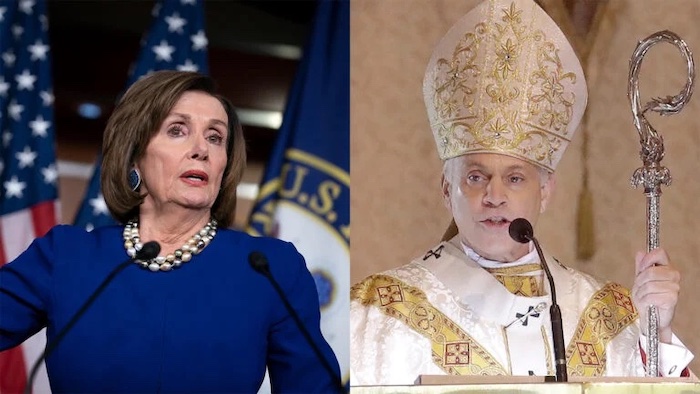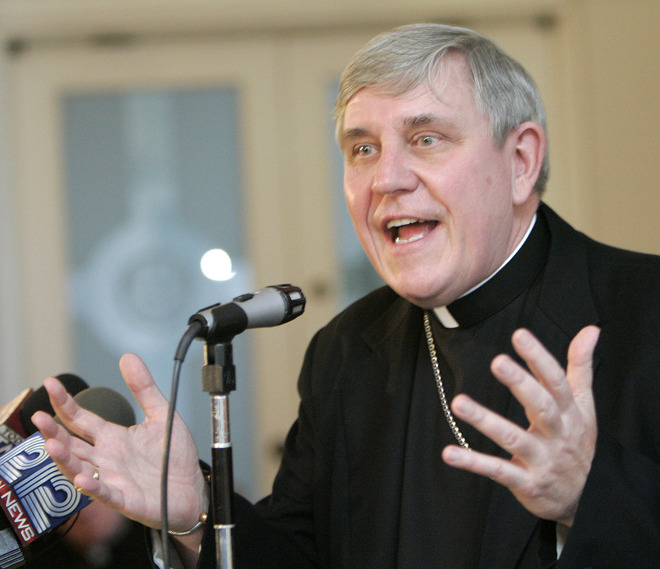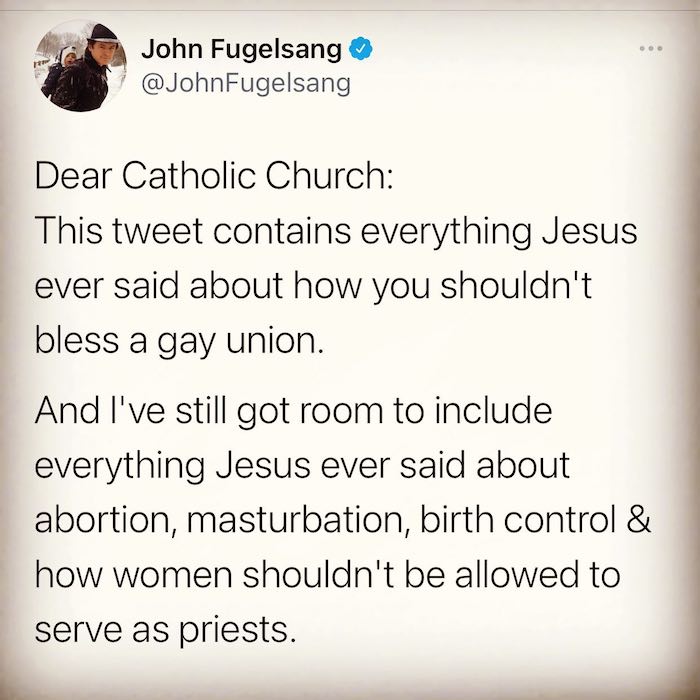
By David Crary
The hardline stances of many conservative Catholic bishops in the U.S. are not shared by a majority of lay Catholics. Most of them say abortion should be legal, favor greater inclusion of LGBT people, and oppose the denial of Communion for politicians who support abortion rights, according to a new poll from The Associated Press-NORC Center for Public Affairs Research.
The poll, conducted in mid-May, shows a clear gap between the prevalent views of American Catholics, and some recent high-profile actions taken by the church’s leaders.
For example, leaders of the U.S. Conference of Catholic Bishops recently called on Catholics nationwide to pray for the U.S. Supreme Court to end the constitutional right to abortion by reversing its 1973 Roe v. Wade decision. According to the new poll, 63% of Catholic adults say abortion should be legal in all or most cases, and 68% say Roe should be left as is.
On May 20, the archbishop of San Francisco, Salvatore Cordileone, announced that he will no longer allow U.S. House Speaker Nancy Pelosi to receive Communion because of her support for abortion rights.
According to the poll, only 31% of lay Catholics agree that politicians supporting abortion rights should be denied Communion, while 66% say they should be allowed access to the sacrament.
An even larger majority – 77% — said that Catholics who identify as LGBT should be allowed to receive Communion. That contrasts sharply with a policy issued by the Diocese of Marquette, which encompasses Michigan’s Upper Peninsula, saying pastors should deny Communion to transgender, gay and nonbinary Catholics “unless the person has repented.”
Natalia Imperatori-Lee, a professor of religious studies at Manhattan College, said the rift between rank-and-file Catholics and the bishops “reveals a breakdown in communication and trust — shepherds who are far removed from the sheep.”
“This is a precarious time for the U.S. Catholic church,” she added in an email. “U.S. Catholics are, on the whole, accustomed to living and working in a pluralistic society and this poll reinforces the notion that they want the public square to remain pluralistic, free from coercion, and oriented toward care for the vulnerable populations among us.”
The Rev. Frank Pavone, national director of Priests for Life, said the poll results didn’t surprise him, and underscored a need for anti-abortion clergy and activists to redouble efforts to change people’s positions.
“For us working on pro-life issues, these kinds of polls are like a summons,” he said. “You’ve got to be doing your work — maybe you’ve got to do it better.”
As for conservative bishops, “their awareness of the gaps that the polling reveals is precisely one of the reasons they feel the need to speak up,″ Pavone said. “They are striving to exercise the role outlined for them in Scripture, namely, to patiently and persistently teach the faith, whether convenient or inconvenient, to clear up confusion.”
Beyond the bishops/laity rift, the poll highlighted other challenges facing the church, which is the largest denomination in the U.S.
For example, 68% of Catholics reported attending religious services once a month or less. Compared to five years ago, 37% said they were now attending less often; 14% said they were attending more often.
Over that five-year span, 26% percent of Catholics said their opinion of the Catholic church had worsened, while 17% said their opinion had improved. Most said their opinion hadn’t changed.
More than two-thirds of U.S. Catholics disagree with church policies that bar women from becoming priests. And 65% say the church should allow openly gay men to be ordained.
The poll was conducted just after the leak of a draft Supreme Court majority opinion that would strike down Roe v. Wade. The views of U.S. Catholics, as expressed in the poll, were in line with the overall American public, both in regard to supporting abortion’s legality and preserving Roe.
However, there were sharp differences among major religious groupings. While 63% of Catholics said abortion should be legal in all or most cases, that stance was held by 74% of mainline Protestants and only 25% of evangelical Protestants.
Sharon Barnes of Dallas, who converted to Catholicism as a young adult, appreciates the centuries-old consistency of Catholic doctrine. Yet she differs from the church on some major social issues, including abortion.
“It’s a woman’s right to decide,” said Barnes, 65. “It’s something that you have to kind of reconcile yourself, and it’s between you and God.”
Pedro Gomez, a 55-year-old border patrol agent in Rio Rico, Arizona, is a lifelong Catholic who prays every night and attends church regularly. He understands the need for abortion in cases of rape, incest or saving the life of a mother, but he said he considers the procedure to be the killing of a child.
Gomez was surprised that most U.S. Catholics support some degree of abortion rights.
“There’s a lot of gray area now that was never there in my upbringing,” he said. “Maybe they’re watering down Catholicism … Now people are being able to make up their own rules.”
Ed Keeley, a 62-year-old public school teacher in Houston, also was raised Catholic. He described abortion as “a hard subject,” saying he believes in the sanctity of life but that abortion should be allowed in specific cases, including rape or incest
He finds it “ridiculous” that a priest would deny Communion to someone because of their views on abortion or politics generally.
Last year, some conservative bishops, including Cordileone, argued publicly that President Joe Biden — a lifelong Catholic — should not receive Communion because of his support for abortion rights. However, Pope Francis conveyed his opposition to such a stance, saying Communion “is not a prize for the perfect.”
Cordileone’s recent denial of Communion for Pelosi was supported by several of his clerical colleagues, including the archbishops of Denver, Oklahoma City, Portland, Oregon, and Kansas City, Kansas. However, Archbishop Michael Jackels of Dubuque, Iowa, issued a statement describing the action as “misguided.”
“As Jesus said, it’s the sick people who need a doctor, not the healthy, and he gave us the Eucharist as a healing remedy,” Jackels said. “Don’t deny the people who need the medicine.”
He also contended that abortion was not the only critical “life issue” facing the church.
“Protecting the earth, our common home, or making food, water, shelter, education and health care accessible, or defense against gun violence… these are life issues too,” he said. “To be consistent, to repair the scandal of Catholics being indifferent or opposed to all those other life issues, they would have to be denied Holy Communion as well.”
John Gehring, Catholic program director at the Washington-based clergy network Faith in Public Life, said some conservative bishops engage in the culture wars “in ways that damage their already diminished relevance and credibility.”
“Most Catholics are fed up with bishops who want to weaponize Communion in a hypocritical, single-issue campaign against pro-choice politicians, especially when we see Pope Francis offering a better road map,” said Gehring
The AP-NORC poll of 1,172 adults, including 358 Catholics, was conducted May 12-16 using a sample drawn from NORC’s probability-based AmeriSpeak Panel, which is designed to be representative of the U.S. population. The margin of sampling error for all respondents is plus or minus 4.0 percentage points, and for Catholics is plus or minus 7.4 percentage points.
Complete Article ↪HERE↩!




